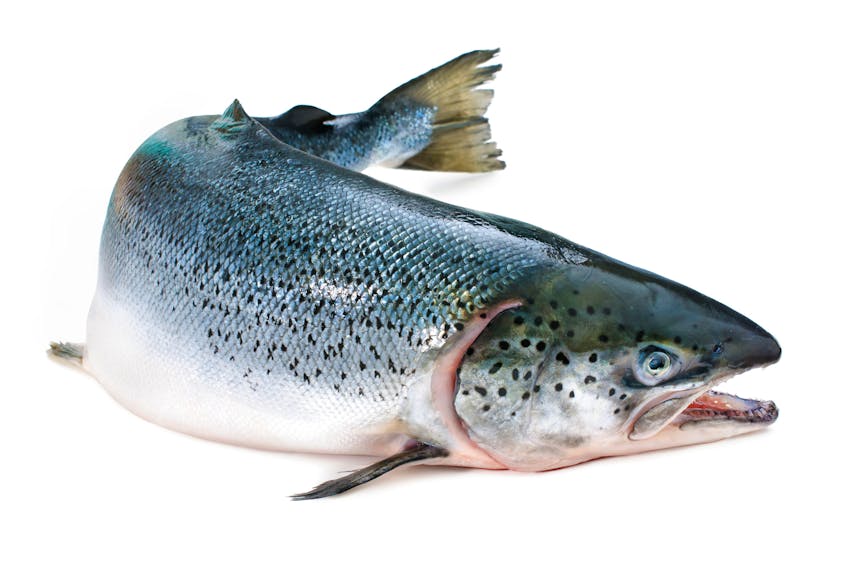The majority of anglers who responded to a Facebook survey on Friday don’t believe salmon numbers are declining in rivers on the island part of the province as much as the Department of Fisheries and Oceans (DFO) science branch stated this week.
Rick Maddigan, a lifelong angler and former president of the Salmon Association of Eastern Newfoundland, said he started the survey on the The Salmon Anglers of Newfoundland Guild Facebook page to gauge the thoughts of anglers in the province.
“I just asked the people, ‘Do you believe the DFO counting fence numbers are representative of the salmon in the river?’” Maddigan said. “Of the 270 responses, three said yes and 267 said no.”
Starting Saturday, all salmon rivers on the island part of the province will be closed to retention angling for the remainder of the season due to low counts following an in-season stock review by DFO science. Catch-and-release angling will continue to be permitted, but rivers will close when water temperatures exceed 18 C.
That’s what happened on Thursday to a number of rivers. DFO issued a notice that about 20 rivers on the island were closed to all angling due to extremely low water levels and extremely high water temperatures.
DFO salmon research scientist Geoff Veinott said on Wednesday the in-season review showed that continuing declines are being experienced in rivers all over the island.
An in-season review of rivers in Labrador is expected to take place next week.
“The declines in 2016 and 2017 really, really surprised us, and it was something we had not seen before,” Veinott said.
“Our juvenile production in fresh water seems to be holding steady. It fluctuates and has been down a little over the last couple of years, but not like you see in term of returns. So, what’s happening is our juvenile fish are going out to sea and are simply not returning. We have mortalities on juveniles … in the order of 95 to 98 per cent of our juveniles die when they leave the rivers. In a year we have eight per cent sea survival we do quite well, but in a year we have four or five per cent sea survival, our rivers are down. The last few years sea survival has been poor.”
The in-season review found that six of 11 (54 per cent) of assessed rivers are predicted this year to be below their recent five-year average (2013-17) for the third year in a row. It also showed 27 per cent are predicted to show no significant change, while 18 per cent are expected to increase.
In addition, seven of nine rivers are predicted to be below the 2011-15 five-year average, and three out of nine rivers are predicted to be below the 2003-12 10-year average.
South coast rivers seem to be those in the most trouble on the island, such as Conne River and Garnish River, he noted.
Maddigan said, however, that DFO’s conclusions from the in-season review have to be challenged.
He said the reason the data are suspect this year is because of late runs, high water and problems with some of the fishways themselves that render the data incomplete. He said anglers and counting-fence workers have noticed salmon going around, jumping over and somehow bypassing the counting fences.
“No reputable scientist would make the conclusions they did based on this suspect data,” Maddigan said. “This is clearly misleading.
“When there are other reasonable explanations for the low numbers of the counting fence, then it is scientifically incorrect to conclude that the salmon runs and populations are low. There are other reasons to explain the low numbers. All they had to do was say, ‘We don’t have enough data,’ or, ‘We don’t trust our data,’ so we are not going to have any more retention. That would have been fine. But they didn’t. They said earlier this year that the runs were in trouble, so they have to show that the runs are in trouble.
“I spent my whole life as a scientist. It is scientifically wrong to make the conclusion they made. If it is not challenged, I think the salmon groups are missing out here.”









